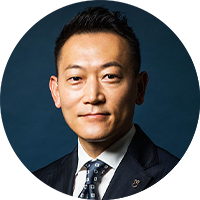Coach's VIEW is a business column authored by executive coaches in COACH A, aimed at providing valuable insights and effective approaches for leveraging coaching to foster organizational and leadership development. The column draws on the latest coaching trends and data, as well as insights from notable global publications on coaching.
The Current Communication Leads the Way to the Future

John's goal is to build a co-creative organization where all employees can work together to create the future. His concept of co-creation is that the output can be more than the sum of its parts. However, he feels the culture of his company is the exact opposite of co-creation.
The CEO of the company came from the corporate side before John was assigned to be the president. Due to this background, employees tend to;
- always follow the directions from the CEO.
- only focus on how to be in alignment with the CEO.
In other words, the tendency of the entire company was to be aligned with only one person, the CEO.
After discussing with the management team about the ideal organization they wish to build, John and I started the coaching journey with the theme of, "how to improve his own leadership skills to achieve the goal". However, after several coaching sessions, John showed up with an uneasy expression on his face saying "No matter how many times I try to deliver my message, the management team does not understand it."
What is Behind "No Matter How Many Times I Say It, They Do Not Understand It"?
I just wonder what is behind the reality. I asked him, "John, what kind of feeling do you have whenever you say, 'No matter how many times I say it, they do not understand it'?" At first, he looked at me as if he wanted to say something, and then he said with a bitter smile.
"I wanted them to just go along with it without questioning me. I feel like I have been acting the same way as the CEO, even though I wanted to have co-creation with them."
John continued, "In fact, that expression often comes up in the management team discussions, so I feel we really have to be the one to change first in order to become a co-creative organization."
If Communication Doesn't Change, People's Awareness and the Organization Does Not Change
John's words reminded me of COACH A's philosophy of organizational development.
"If communication does not change, neither people's awareness nor the organization will change."
Almost all the activities of an organization are based on communication. Therefore, if communication does not change, neither people's awareness nor the organization will change.We cannot communicate in a better way beyond what we understand about communication.The concept of changing communication requires the change in the understanding, perception, and purpose of the communication. When the understanding and purpose of communication change, it brings a change in the way we interact and communicate with others.
What does it mean by changing the understanding and purpose of communication then? For example, those who believe that people are motivated by acknowledgement, will acknowledge others with the aim to motivate them. On the other hand, those who believe that people become arrogant from acknowledgement, are likely not to do so.
The same act of acknowledgement can vary in behavior depending on how you perceive it. In other words, if your perception does not change, your behavior will never change. Given those assumptions, we need to think about how our perceptions can change our way of communication.
Reflect on Your Own Communication
In order to achieve John's vision of an organization, I assumed it would be essential for him to reconsider the communication within the organization. I suggested the entire management team do the same, and to do it during the executive training camp. John then modified the agenda of the training camp to include reflection on their communication instead of discussing the mid-term management plan.
On the first day of the camp, John announced to his management team members:
"This camp was originally planned to think together about the future of our company. However, I think we need to take a step back to our current situation before talking about our future. That will inevitably lead to a brighter future. Let's leverage this executive camp as an opportunity for us, and including myself, to change for the future."
During the camp, all the board members spent a whole day reflecting on their own communication through dialogues along the following themes.
- What is the purpose of your communication?
- What is the difference between one-way and two-way communication?
- What kind of communication would enhance the company's transformation?
- What does productive conflict look like?
- What is co-creation?
- What would you change in your own communication for the transformation of your company?
After the camp, the following comments were received from the executives.
- I am convinced that the earlier we start discussing conflicts and solutions together, the better off we would be.
- I am convinced that we will get better results if we start the dialogue at an early stage and discuss solutions together. It is important for me to be involved so that my subordinates can speak up as well.
According to John, they came up with changes on communication in the meetings after the camp. In the past, when a proposal was submitted, only several options would be offered for the management team to select. However, recently they have changed and would come up with more situations and the management team would instead ask the person in charge, "What do you want to do in this case? " before making the decision.
John told me that he felt a big change from the previous corporate culture of "top management decides everything" to the one where each individual initiates toward a co-creative organization.
What kind of change do you want to create in your organization?
And what is the purpose of your communication?
*Regardless of profit, non-profit or intranet, secondary use such as copying, diversion, selling etc. is prohibited without permission.
Language: Japanese

